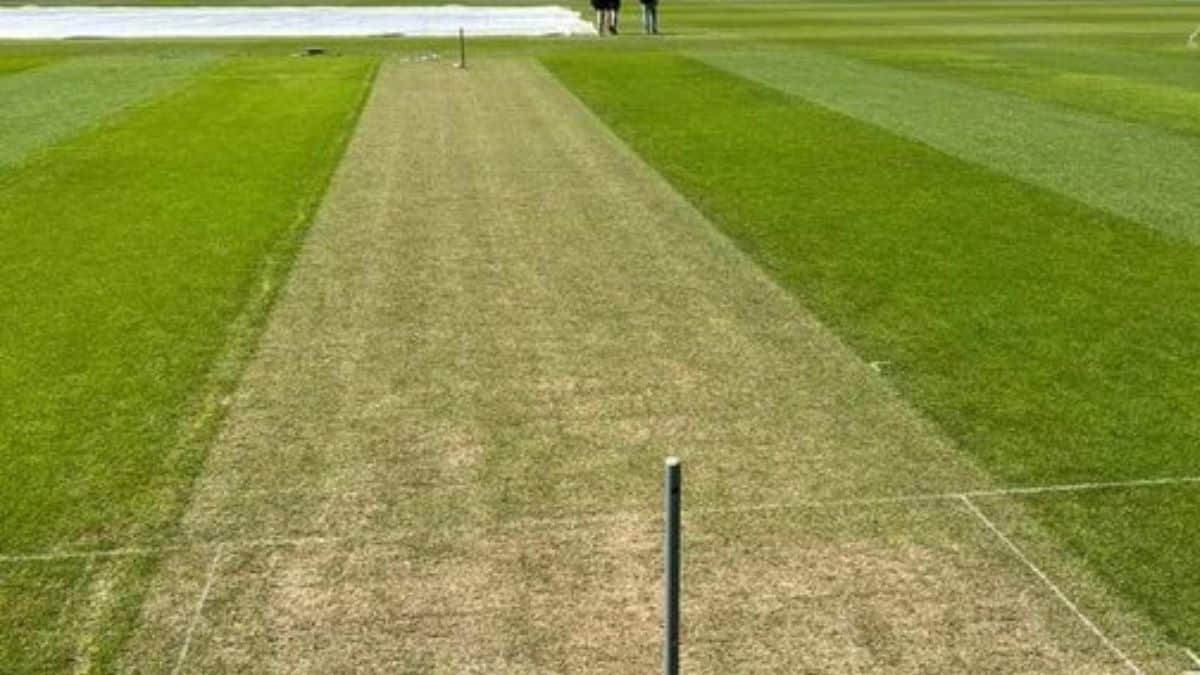In anticipation of the highly anticipated World Test Championship (WTC) final between India and Australia, the condition of the Oval wicket has become a topic of discussion. Surprisingly, it has been revealed that the International Cricket Council (ICC) has taken the precautionary step of preparing not just one, but two pitches for the one-off match scheduled to begin on Wednesday (June 7). This decision by the ICC is not driven by any undisclosed or controversial reasons; rather, it is a proactive measure to address unforeseen circumstances.
The ICC’s choice to have two pitches ready is primarily motivated by an abundance of caution, particularly in light of ongoing oil protests and disruptions in London. With concerns over potential breaches at the South London ground, the global governing body is keen on being prepared for any eventuality. As part of these precautionary measures, the ICC has also made alterations to the playing conditions, including the addition of a new clause (6.4) specifically addressing the unlikely scenario of pitch damage before or during the Test match. Both teams have been duly notified of this possibility, albeit remote, while additional security measures are being implemented for the game.
While the existence of an alternative pitch is not publicly evident, all stakeholders involved in the match are aware of this contingency plan, often referred to as ‘Plan B’. Given the sensitivity of the situation, the authorities are unwilling to provide detailed comments.
However, a reliable source close to the matter emphasized the heightened caution being exercised, particularly because this is a one-match championship final. “We are preparing for all possible scenarios to ensure a conclusive outcome for the final,” shared a local source well-versed in the developments. The relevant points of the newly introduced clause are outlined below.
Clause 6.4: Provision for Pitch Change
6.4.1: If the on-field umpires determine that continuing play on the match pitch is unsafe or unreasonable, they shall halt the game and promptly inform the ICC match referee.
6.4.2: The on-field umpires and ICC match referee will consult with both team captains.
6.4.3: If the captains agree to resume play, the match will recommence.
6.4.4: If the decision is not to resume play, the on-field umpires, in consultation with the ICC match referee, will assess whether the existing pitch can be repaired and the match can resume from the point it was stopped. The ICC match referee must consider whether such repair would unfairly advantage either side, taking into account the play that had already taken place on the compromised pitch.
6.4.5: If the determination is that the existing pitch cannot be adequately repaired, the ICC match referee will collaborate with the ICC to explore the possibility of continuing the match on another pitch at the same venue, provided that the ICC verifies the suitability of the new pitch for a Test match.
6.4.6: If resuming the match on another pitch at the same venue on any scheduled day of the match (including the reserve day) is not feasible, the match will be abandoned without a result.
6.4.7: Throughout the decision-making process outlined above, the ICC match referee will keep both team captains and the head of the ground authority informed. The head of the ground authority will ensure appropriate and timely public announcements are made as necessary.
The ICC’s meticulous planning and provision of two pitches for the WTC final reflect their commitment to ensuring a fair and conclusive conclusion to this prestigious championship match. While the chances of invoking this backup plan may be slim, the ICC’s proactive approach guarantees preparedness for any unexpected circumstances that may arise.


